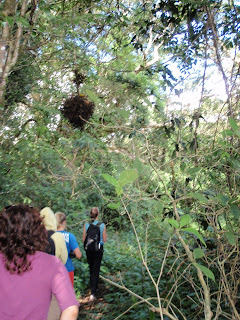I wrote up some notes while in Malawi over the summer about things I wanted to write about and finally have a bit of time to catch up.
The road trip back to Nkhata Bay for our extended weekend can be summed up in one word: sweckling. Swedish Heckling.
I'm not great at this, but thankfully, T$ and Lebekah gracefully befriended large numbers of random, interesting and fun people while traveling. So, we had a little travel family at Mayoka for the long weekend. Four Swedes, five-ish Americans and a Canadian. Games were played, conversations meandered and everyone was sweckled. As it turns out, Swedes are terrible hecklers. They just don't do it well. We learned that a Swedish version of Jerry Springer wouldn't last. If you assume that the insults, drama and passionate yelling are the primary drivers of the show and consider the sweckling it all makes sense. The Swedish version would consist of people saying things like "Oh...that was not a very nice thing to do to her" or "You are not the nicest of people" or "Please remove your hands from my husband, you pretty adulterer."
The weekend was full of celebrating and honorary citizenship to honor the US and Malawian Independence days. It was amazing how alike we all felt for that short time. The trip offered a much needed break from reality.









